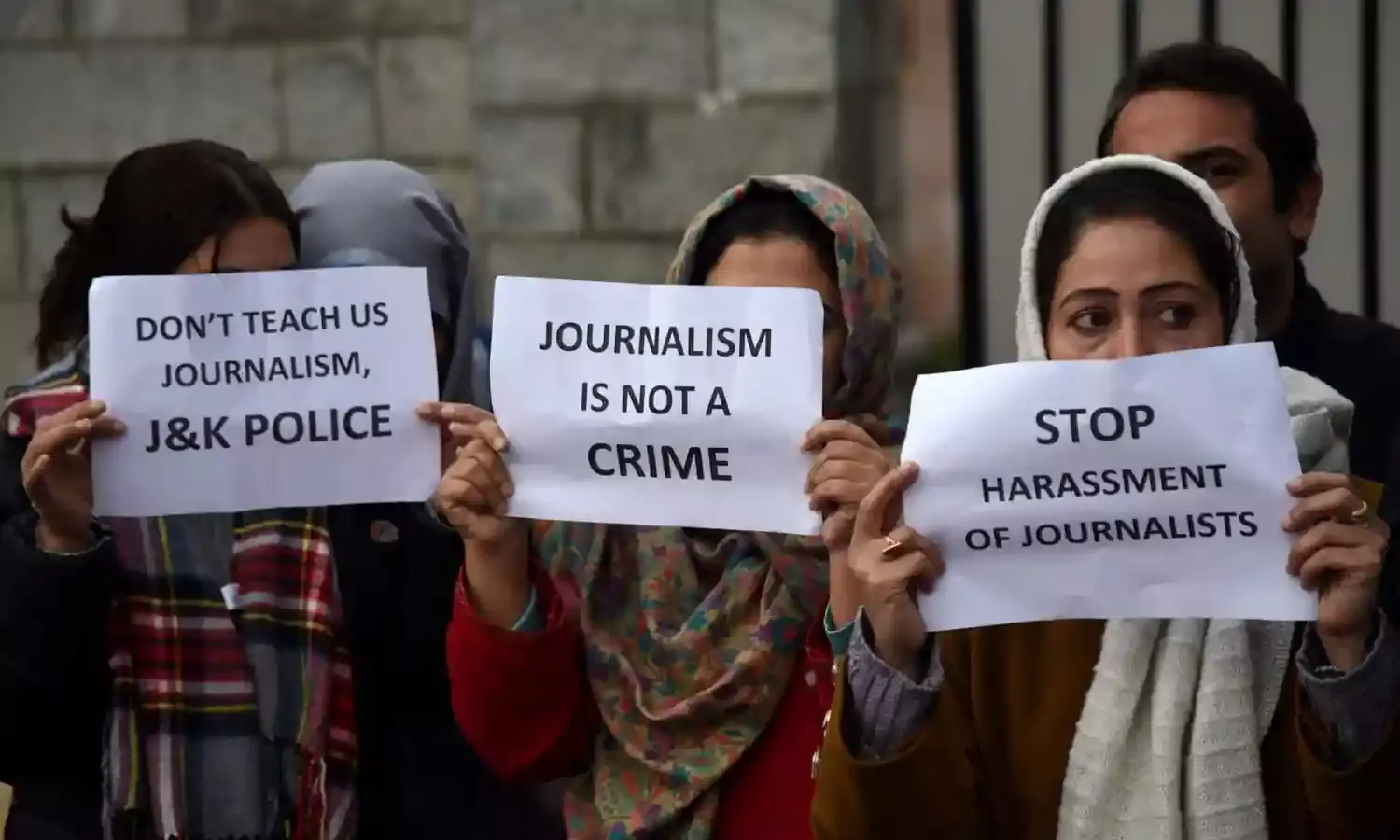Restore Press Freedom in J&K - 397 Demand Release of Journalist Aasif Sultan In Letter to PM
Sultan arrested under UAPA 2 years ago

Journalists in Jammu and Kashmir have been facing the heat for a long time, but more so after August 5 last year when the central government abrogated Articles 370 and 35A and changed the status of the state. Independent reporting leads to summons from local police stations, warnings, threats, and of course charges accompanied in many cases with arrests. The fear within the media community is palpable with the one profession that young Kashmiris had been embracing with passion, being made ‘out of bounds’ through a series of such actions.
It is perhaps thus, with some reason, that the first all party meeting of Opposition leaders under the watch of the National Conference and Farooq Abdullah did not generate much enthusiasm amongst the scribes in the Valley as while there was a great deal about the Gupkar declaration, there was little to nothing about the systematic targeting of media persons in the Valley. The National Conference, Peoples Democratic party,Congress party, People’s Conference, CPI-M and the Awami National Conference came together to make it clear that they were not part of, and indeed totally opposed to, August 5 measures implemented by the central government.
The space for Kashmir’s media to operate from has been effectively curtailed. As a response to this and the specific arrest of journalist Aasif Sultan, imprisoned now for two years, at least 397 scribes, writers, scholars have written to Prime Minister Narendra Modi under the aegis of the Committee to Protect Journalists, for his immediate release. Writing for the Kashmir Narrator, Sultan has been jailed under the draconian Unlawful Activities Prevention Act for allegedly “harboring known terrorists.”
For journalists, militants and extremists and hardliners are not taboo, in fact quite the opposite being a key part of reportage. Interviews with insurgents have been part of every conflict reporter's narrative, and as the letter to the PM states, “interviewing alleged militants or having sources who are critical of the government is within the scope of a journalist’s job and does not implicate them in any crime. Events in Kashmir are of public interest, and covering them is a public service, not a criminal act.”
The letter further adds, “journalists should not face retaliation for their reporting. Press freedom is a vital tenet of democracy and a proud part of India’s history. We are asking you to recognize and uphold India’s commitment to press freedom under Article 19 of its constitution.” It also reminds the PM of the Supreme Court March 23 guidance to release prisoners on parole due to the Covid-19 pandemic, and grant Aasif Sultan “immediate and unconditional release.”
It is a fact that the media in Kashmir has always felt the heat at the first sight of trouble between New Delhi and Srinagar. It’s freedom has vacillated on circumstances with the journalists finding it difficult to report on an even keel. In that the seesaw of turbulence impacted directly on freedoms, despite the fact that the state has a few well established newspapers and others that have mushroomed over the years.
Of these Rising Kashmir edited by well known journalist Shujat Bukhari has already paid for ‘independence’ through the assassination of its founder-editor by gunmen just outside his office. Bukhari had years in the field, working as a well known and respected journalist of The Hindu before returning to the Valley and starting his own newspaper in the belief that he would have the space to work without threat.
Aasif Sultan was led away from his house in handcuffs according to media reports at the time, with a large contingent of police pounding on the doors and carrying out an intensive search of the premises. His father, a retired government personnel, told reporters at the time that the family was absolutely terrified. While the reasons were not made known at the time, it was suggested that the arrest followed his report on Burhan Wani where he had written of the strong support amongst the youth for him, based on interviews.
It is true that militants and insurgents often attract huge support from sections of their community, particularly the young, as has been the case with erstwhile militants from the NSCN-IM, ULFA, and even the pro-Khalistan leaders at the time like Jarnail Singh Bhindranwale. Journalists have recorded this support, interviewed insurgents, and this is not expected to be taken as personal support for militants or extremists or terrorists.Otherwise most well known journalists across the world would be in jails.
The CPJ letter has reminded the PM of the “recent deaths of journalists who contracted Covid-19 in government custody around the world and the spread of Covid-19 among inmates in jails in Jammu and Kashmir, )because of which) the threat to Sultan’s well being is imminent.” The letter signed by almost 400 journalists and scholars has demanded Sultan’s “immediate and unconditional release.”



